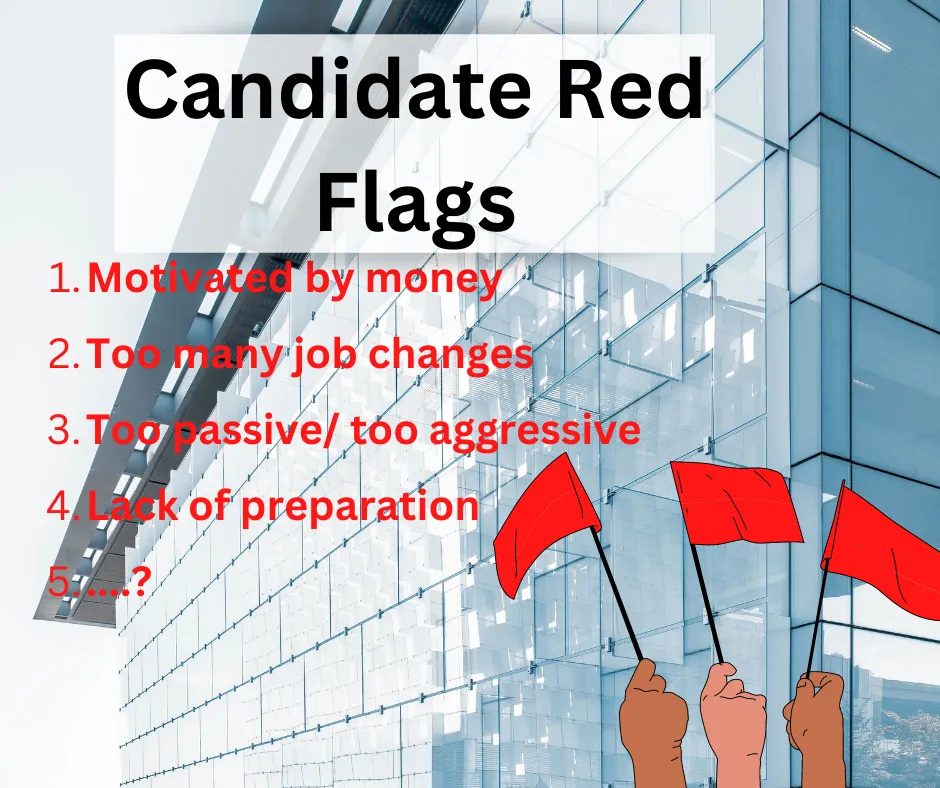In the digital age, where connections are often just a click away, having a LinkedIn profile can feel like a necessity. But what happens if you don't have one? Is it a red flag for potential employers? In this blog post, we’ll dive into the significance of LinkedIn in today's job market and explore whether or not the absence of a profile should raise eyebrows.
The Importance of LinkedIn in Today’s Job Market

LinkedIn has transformed the way professionals network, job search, and showcase their skills. Here are a few key reasons why having a LinkedIn profile is increasingly important:
- Professional Networking: LinkedIn is a hub for over 900 million professionals globally. This platform allows you to connect with industry leaders, peers, and potential employers, making it easier to build and maintain relationships.
- Job Opportunities: Many employers actively search for candidates on LinkedIn. According to a recent survey, about 90% of recruiters use LinkedIn to find talent. Not having a profile may mean missing out on job openings that align with your skills.
- Showcasing Your Brand: Your LinkedIn profile is your personal brand. It’s a place to highlight your achievements, endorsements, and recommendations from colleagues, which can significantly enhance your professional image.
- Industry Insights: LinkedIn offers a wealth of articles, resources, and professional groups tailored to your interests. Engaging with these can keep you informed about industry trends, helping you stay competitive.
In summary, LinkedIn serves as a powerful tool for career advancement and professional visibility. In a world where digital presence matters, lacking a LinkedIn profile can indeed signal a lack of engagement with the professional community, prompting concerns among recruiters and employers.
Also Read This: How to Link Behance to LinkedIn
Potential Reasons for Not Having a LinkedIn Profile

While LinkedIn is a popular platform for networking and showcasing professional achievements, there are several valid reasons someone might choose not to have a profile. Here are some common ones:
- Privacy Concerns: Many individuals are wary of sharing personal information online. They may prefer to keep their professional life separate from social media, fearing potential privacy issues.
- Preference for Traditional Networking: Some professionals feel more comfortable building relationships face-to-face or through other means, such as local networking events or industry conferences.
- Limited Digital Presence: Not everyone is tech-savvy or comfortable navigating online platforms. Some individuals may not prioritize maintaining an online professional presence.
- Career Breaks or Changes: Those who are taking a break from their careers or transitioning to a new field might not see the need for a LinkedIn profile, especially if they’re not actively job hunting.
- Job Security: In certain industries, keeping a low profile can feel safer. Professionals might worry that being visible on LinkedIn could attract unwanted attention from competitors or recruiters.
Ultimately, the absence of a LinkedIn profile doesn’t automatically indicate a lack of professionalism or ambition; it simply reflects personal choices and circumstances.
Also Read This: Effortless Ways to Edit or Remove Songs from Your YouTube Playlists
How Employers View Absence of a LinkedIn Profile
When it comes to recruitment, employers often have varying perspectives on candidates without LinkedIn profiles. Here's a breakdown of how some might view this absence:
| Employer Perspective | Explanation |
|---|---|
| Red Flag | Some employers may interpret the lack of a LinkedIn profile as a sign of an unmotivated or disengaged candidate. They might question the individual's commitment to their professional image. |
| Not a Dealbreaker | Others may view it as a personal choice. If the candidate has a strong resume and impressive qualifications, employers might focus more on their skills rather than their online presence. |
| Industry-Specific | In certain fields, such as tech or marketing, having a LinkedIn profile might be more critical. In contrast, professions like manual labor or specialized trades may not prioritize digital networking. |
Overall, while having a LinkedIn profile can be beneficial, its absence isn't always seen as a negative. Candidates can still demonstrate their expertise and professionalism through other means, such as portfolios or personal websites.
Also Read This: Login to YouTube Without a Google Account for More Options
Alternatives to LinkedIn Profiles
While LinkedIn is undoubtedly a powerful networking tool, it’s not the only option out there. If you’re not on LinkedIn or prefer different platforms, there are several alternatives that can help you showcase your skills and connect with professionals. Here are a few worth considering:
- Twitter: Surprisingly, Twitter can be a great platform for professional networking. By following industry leaders and participating in relevant conversations through hashtags, you can build a presence in your field.
- GitHub: For tech professionals, GitHub is indispensable. It allows you to showcase your coding skills, collaborate on projects, and connect with other developers. Your profile can serve as an online portfolio of your work.
- Medium: If you enjoy writing, Medium is an excellent platform to share your thoughts and expertise. By publishing articles related to your industry, you can establish yourself as a thought leader.
- Facebook Groups: Many industries have dedicated Facebook groups where professionals share insights, job postings, and advice. Engaging in these groups can lead to valuable connections.
- Industry-Specific Platforms: Depending on your field, there might be niche networks tailored to your profession. For example, ResearchGate for researchers or Behance for creatives.
Each of these platforms has its unique advantages and can complement or even replace a traditional LinkedIn profile. Choosing the right one depends on your industry and how you want to present your professional self.
Conclusion: Weighing the Pros and Cons
So, is not having a LinkedIn profile a red flag? It really depends on your career goals and the industry you’re in. Here are some pros and cons to consider:
| Pros | Cons |
|---|---|
|
|
Ultimately, the decision to have or forgo a LinkedIn profile should align with your professional aspirations and comfort level. It’s essential to balance visibility with your personal and professional needs.